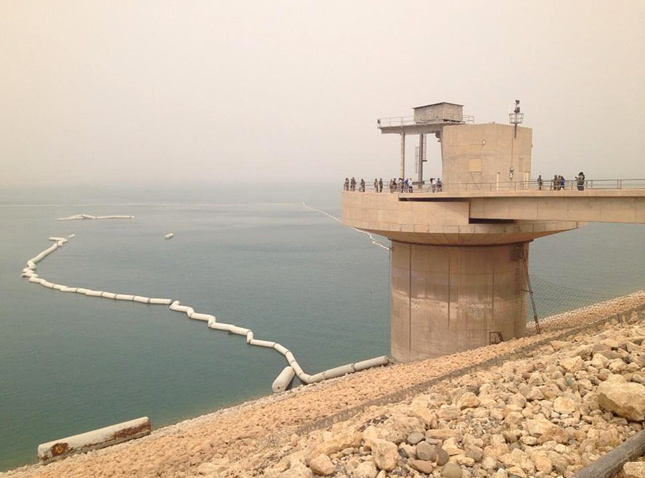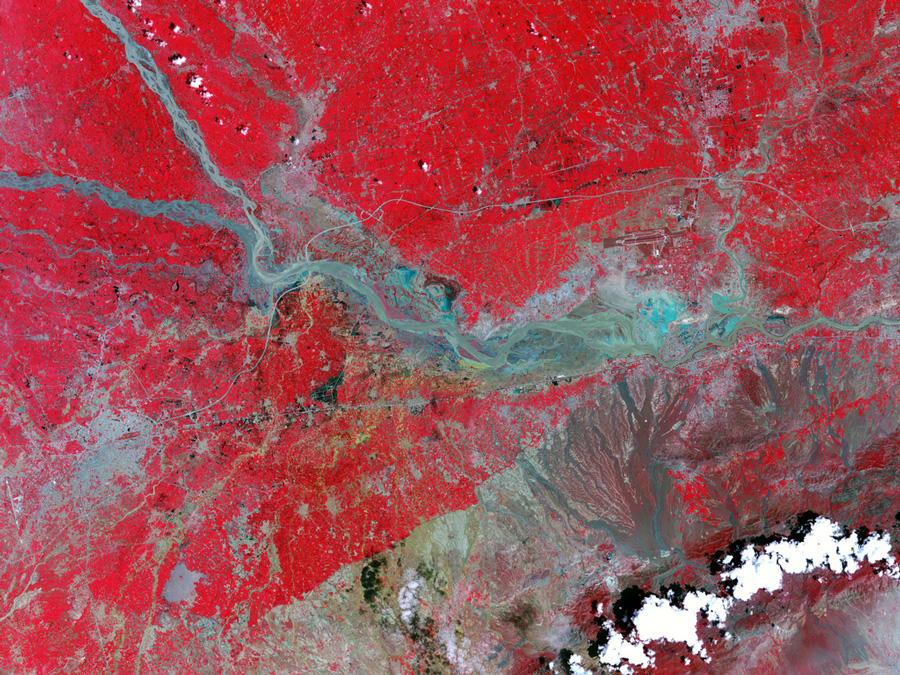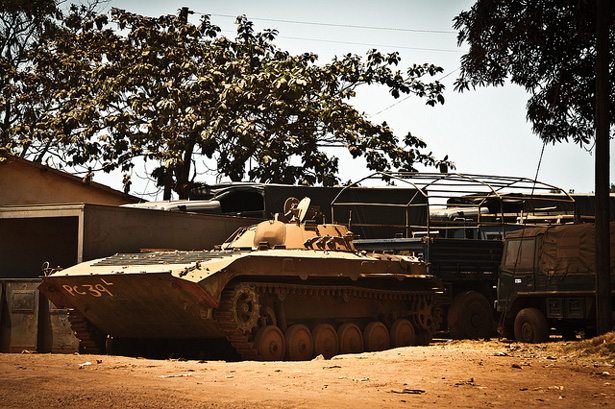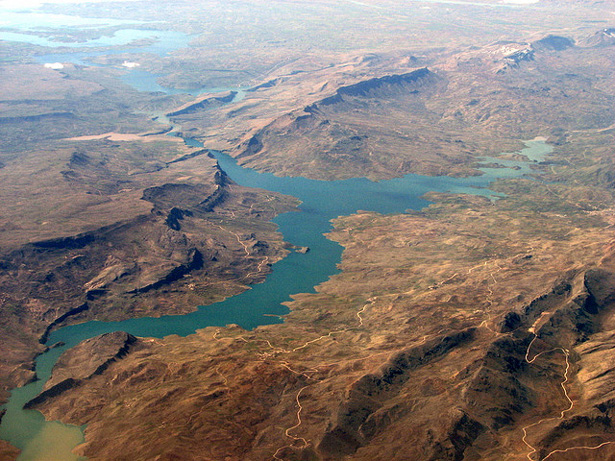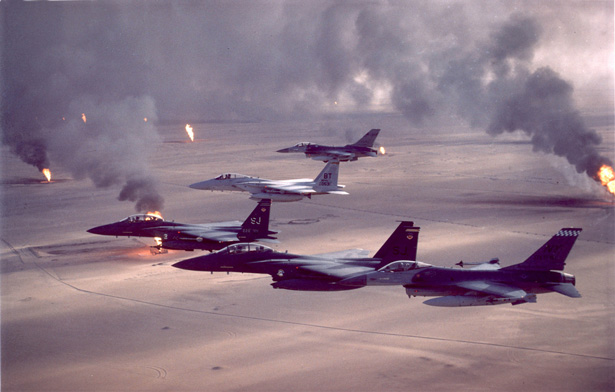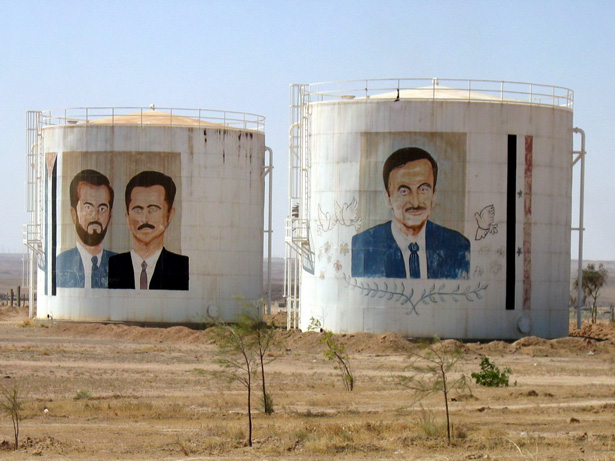-
Haleh Esfandiari, The Wall Street Journal
ISIS’s Cruelty Toward Women Gets Scant Attention
›September 11, 2014 // By Wilson Center Staff
Tucked away in a recent New York Times story on military operations against ISIS by Iraqi special forces and the Kurdish Peshmerga was a brief description of what these troops discovered when they entered a village in Iraq that had been occupied by ISIS fighters. A naked woman, tied to a tree, who had been repeatedly raped by ISIS fighters. Another woman was discovered in a second village, similarly naked, tied down and repeatedly raped. The fighters, it appears, are “rewarded” by being allowed to have their way with captured women.
-
What Can Iraq’s Fight Over the Mosul Dam Tell Us About Water Security?
›The fight for control over “the most dangerous dam in the world” is raging.
Since its capture by Islamic State (IS) militants on August 7 and subsequent attempts by Iraqi government and Kurdish forces to take it back, Iraq’s Mosul Dam has been one of the central components of the government’s surprising and rapid collapse in the country’s northern and western provinces. In fact, one might see the capture of the Mosul Dam as the moment IS ascended from a dangerous insurgent group to an existential threat to Iraq as a state.
-
Alissa J. Rubin and Tim Arango, The New York Times
Rebels Capture Iraq’s Largest Dam
›August 8, 2014 // By Wilson Center StaffSunni militants captured the Mosul dam, the largest in Iraq, on Thursday as their advances in the country’s north created an onslaught of refugees and set off fearful rumors in Erbil, the Kurdish regional capital.
-
Water Wars? Think Again: Conflict Over Freshwater Structural Rather Than Strategic
›The global water wars are almost upon us!
At least that’s how it seems to many. The signs are troubling: Egypt and Ethiopia have recently increased their aggressive posture and rhetoric over the construction of the Great Ethiopian Renaissance Dam in the headwaters of the Blue Nile, Egypt’s major artery since antiquity. India continues to build new dams that are seen by its rival Pakistan as a threat to its “water interests” and thus its national security. Turkey, from its dominant position upstream, has been diverting the Tigris and Euphrates rivers and increasing water stress in the already-volatile states of Iraq and Syria.
-
Bringing Natural Resources to the Table: ELI, UNEP Launch New Environmental Peacebuilding Platform
›
To date, despite their demonstrated importance in both conflict recovery and the risk of conflict recurrence, natural resources have been largely ignored or downplayed in post-conflict settings around the world.
-
The Great Anatolia Project: Is Water Management a Panacea or Crisis Multiplier for Turkey’s Kurds?
›
During the Gezi Park protests last month in Istanbul, Turks and Kurds dismissed historical mistrust and banded together against Prime Minister Erdogan’s growing authoritarianism. Some have suggested the newly unifying cause has strengthened momentum for a long-standing solution to Kurdish autonomy and rights in Turkey. Still it may be water that the fate of Kurdish ambitions is most tied to, rather than officials in Ankara or protestors in Istanbul.
-
Petro-Aggression: When Oil Causes War
›
One year ago, the United States government froze all property of the Central Bank of Iran and other Iranian financial institutions within the United States. The move was part of a broader effort to compel the Islamic Republic to give up its alleged nuclear weapons program. How is it working out?
-
Josh Wood, The New York Times
Assad Regime, Rebels, and Kurds Vie for Control of Syria’s Oil
›April 23, 2013 // By Wilson Center Staff
The original version of this article, by Josh Wood, appeared on The New York Times.
Once highly dependent on revenue from petroleum sales, the Syrian government has lost control of many of the country’s major oil fields over the past few months as Kurdish forces and the rebel Free Syrian Army have made significant gains in the east.
Showing posts from category Iraq.


